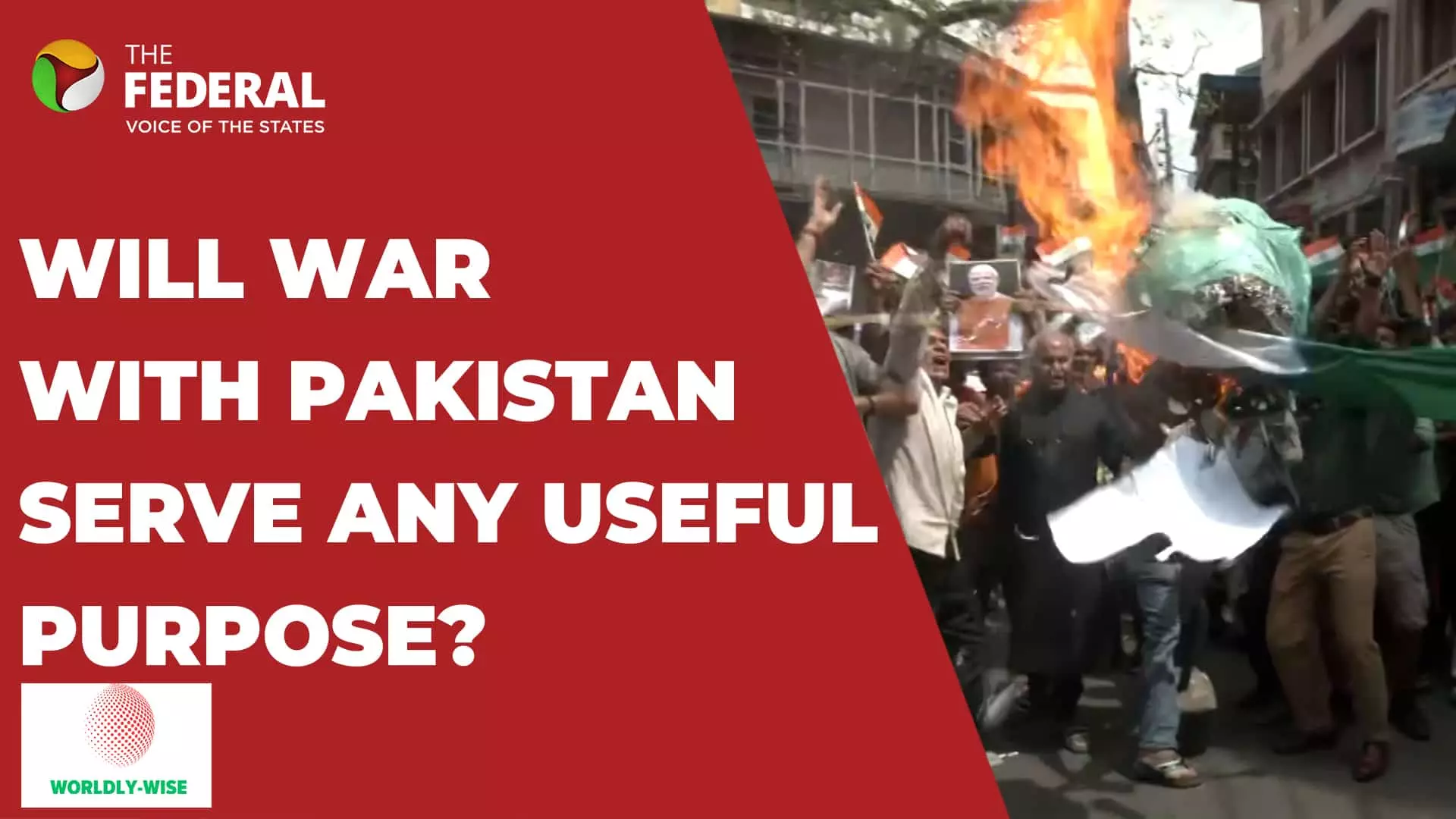
Pahalgam terror attack: Is war with Pakistan the only option? Worldly Wise
As the Russia-Ukraine, Iran-Iraq and Israel-Hamas conflicts show, wars are expensive, take a huge toll on people, and achieve little

The recent terrorist attack in Pahalgam, Kashmir, which killed 26 tourists, has sent shockwaves across India, raising demands for military retaliation against Pakistan.
The Indian government has blamed Pakistan for sponsoring the attack, and public anger is running high, with sections of social media openly calling for war.
The latest episode of Worldly Wise, The Federal’s weekly international affairs programme, examines whether military action is the right path—or a dangerous gamble that could drag India into the same destructive cycle seen in other global conflicts.
Wars gone wrong
The episode begins by drawing parallels with the ongoing Russia-Ukraine war. When Russian President Vladimir Putin launched his “special military operation” in February 2022, he likely expected a swift victory over Ukraine. Instead, three years later, the war has left tens of thousands dead, millions displaced, and both nations deeply wounded.
Russia’s quick strike turned into a long disaster. Military plans can spiral far beyond their initial aims.
Another cautionary tale comes from the Iran-Iraq war (1980–88), when Saddam Hussein invaded Iran over a border dispute along the Shatt al-Arab river. After eight years of brutal fighting, the war ended in a stalemate, with no territorial gains and both countries left economically battered.
Nothing changes
Saddam’s war left thousands dead—and changed nothing. Wars often leave nations worse off without resolving the disputes they were meant to settle.
Then there is Hamas’s 2023 attack on Israel—an armed strike fueled by decades of oppression against Palestinians in Gaza. But Israel’s massive retaliation has killed an estimated 60,000 Palestinians, devastating Gaza’s cities and drawing international condemnation.
Militarily speaking, what was Hamas trying to achieve? Hamas had a flash of glory, but Gaza paid a catastrophic price.
India’s choices
The episode closes by questioning whether an Indian military strike on Pakistan would resolve the Kashmir dispute or prevent future attacks like Pahalgam and Mumbai.
A war may look good on TV, but what about the deaths, destruction, and nuclear risks?
Instead, there are diplomatic tools, such as pressing to return Pakistan to the Financial Action Task Force (FATF) grey list, which had earlier imposed financial constraints on Islamabad. Notably, Pakistan was removed from the FATF grey list only recently, and the episode suggests that smart, coordinated diplomatic action could deliver more lasting results than military conflict.
Even Pakistan’s close allies, such as Turkey and China, condemned the Pahalgam attack, giving India an unusual level of international support. India’s real strength may lie in using this moral high ground to win global backing and rebuild trust among ordinary Kashmiris.
The underlying message: wars may satisfy immediate emotions, but their long-term costs—and their tendency to unleash unpredictable, uncontrollable consequences—are rarely worth the gamble.
The content above has been generated using a fine-tuned AI model. To ensure accuracy, quality, and editorial integrity, we employ a Human-In-The-Loop (HITL) process. While AI assists in creating the initial draft, our experienced editorial team carefully reviews, edits, and refines the content before publication. At The Federal, we combine the efficiency of AI with the expertise of human editors to deliver reliable and insightful journalism.

